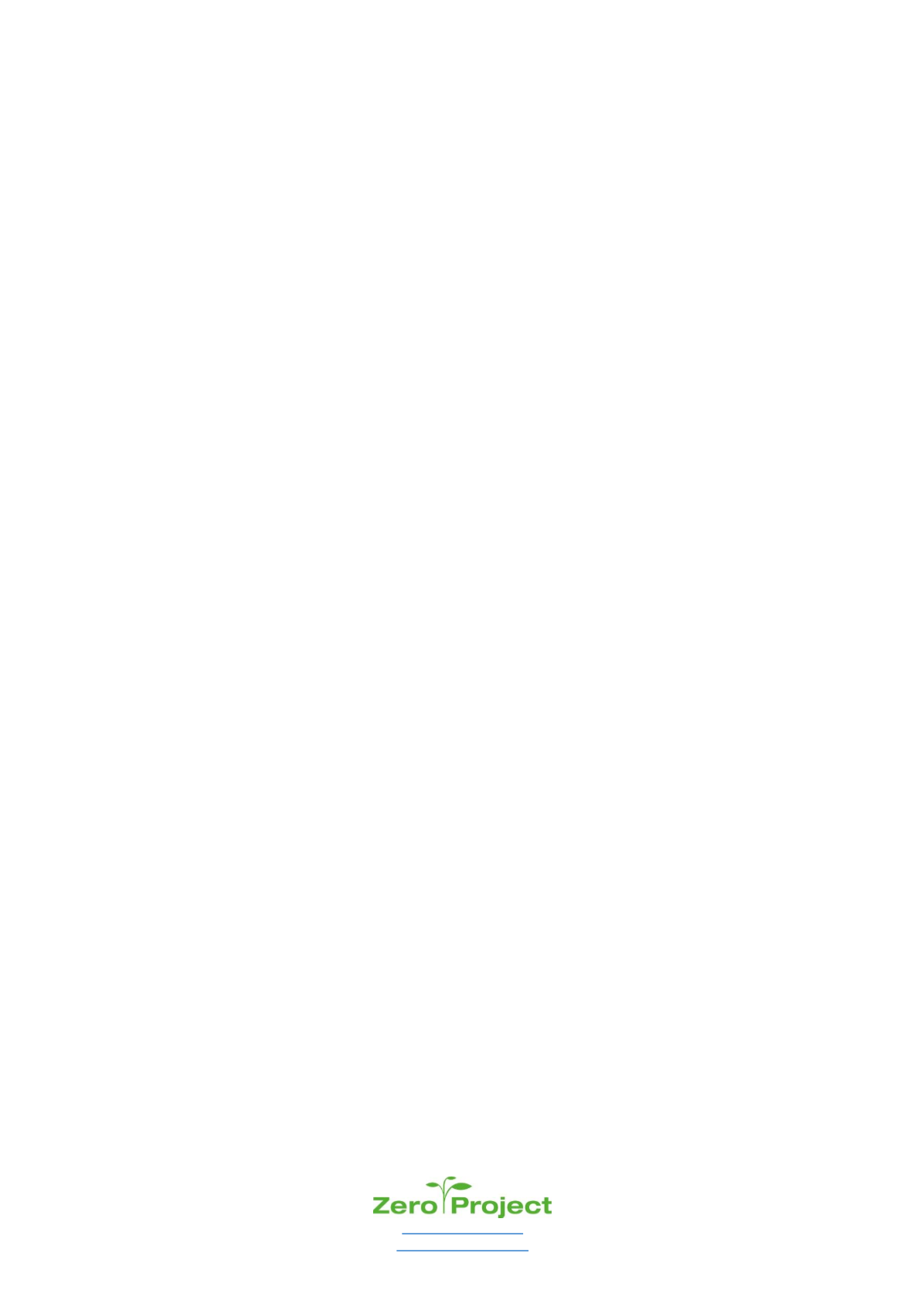
 www.zeroproject.org
office@zeroproject.org
www.zeroproject.org
office@zeroproject.org
accessibility and technical aids, through the DARE-project (which focused on distribution of information and knowledge
of students with disabilities to staff) and through increased responsibility of staff members.
F
ACTS ON
O
UTPUT
(W
ITH
A
DDITIONS FROM THE
Z
ERO
P
ROJECT
T
EAM
)
1.
F
ROM
1995
TO
2013,
THE TOTAL NUMBER OF STUDENTS AT
U
NIVERSITY OF
I
CELAND INCREASED FROM
5,692-14,009
STUDENTS
.
D
URING THE SAME PERIOD
,
THE NUMBER OF STUDENTS WITH DISABILITIES HAS INCREASED CONSIDERABLY MORE
,
FROM
50
TO
941
STUDENTS
.
2.
Numbers of Students with different disabilities have increased at the University for the academic year 2012-
2013.
3.
The University has developed recommendations /policy for the work for students with disabilities.
4.
Pilot policy and creation of a network: In May 2011 a workshop on accessibility was attended by 9 universities
and 19 higher education institutions. In May 2014, this network had expended to 38 universities and 59 other
players.
F
ACTS ON
O
UTCOME
,
I
MPACT AND EFFECTIVENESS
1.
According to a booklet published in May 2014 by the Nordens Välfärdscenter, the University of Iceland, along
with their UCCC, is a good example of inclusive education for students with disabilities in universities and higher
education institutions. At the University of Iceland’s the number of students with disabilities increases and a
strong influencing factor in this is that the University of Iceland has a own resolution and policy describing the
services and support for students with disabilities.
2.
In recent years, the understanding among university employees and the administrative staff has increased
among others due workshops and information about specific issues.
T
RANSFERABILITY
, S
CALABILITY AND
C
OST
-E
FFICIENCY
The University of Iceland’s Regulation on Disability Services of 2010 can be easily copied and adapted by other
universities who wish to make their higher education offers and services accessible to all. A recent booklet published by
the Nordic Council for Welfare mentioned that it is in particular the University of Iceland’s policy and regulation
concerning disability services which spurred the strong increase in numbers of students with disabilities and recognized
it as an international best practice example.
F
UTURE
D
EVELOPMENT
(W
ITH
A
DDITIONS FROM THE
Z
ERO
P
ROJECT
T
EAM
)
For the immediate future, the goal is to support the students with disabilities and to continue the development and
improve the services offered at the university, that UCCC keeps informed and updated with new methods and
technology. Since students with disabilities are a diverse group consisting of individuals with different needs, the
optimum would be to develop and offer individually tailored forms of support and services that could be considered by
different education programmes. It is also necessary to improve the academic and administrative staff's understanding
and awareness. Services for students with disabilities that would facilitate the transition from study to work would be a
















